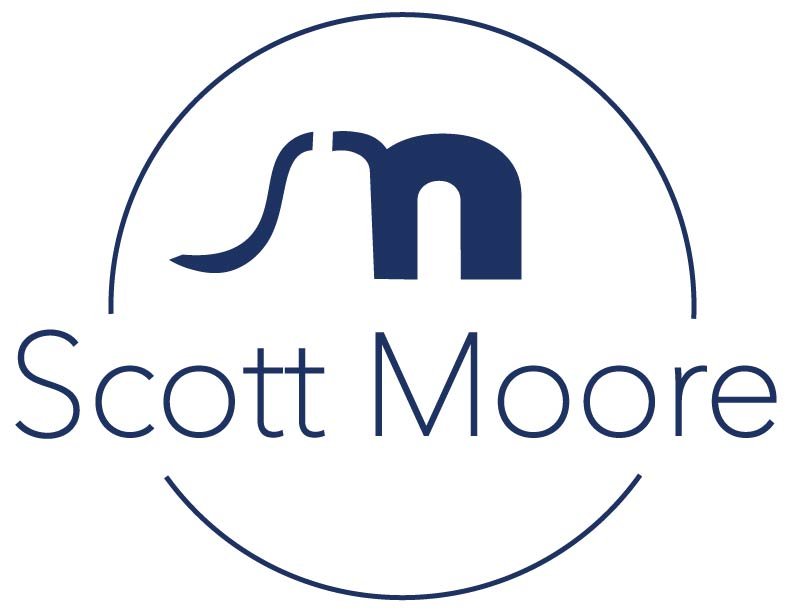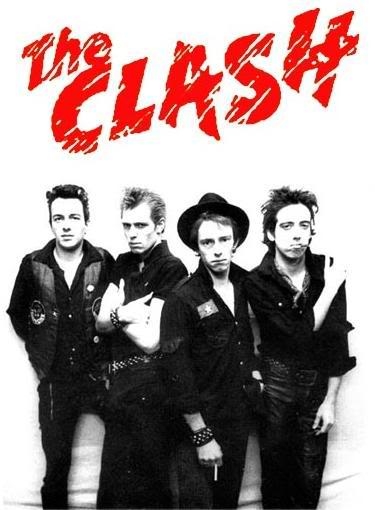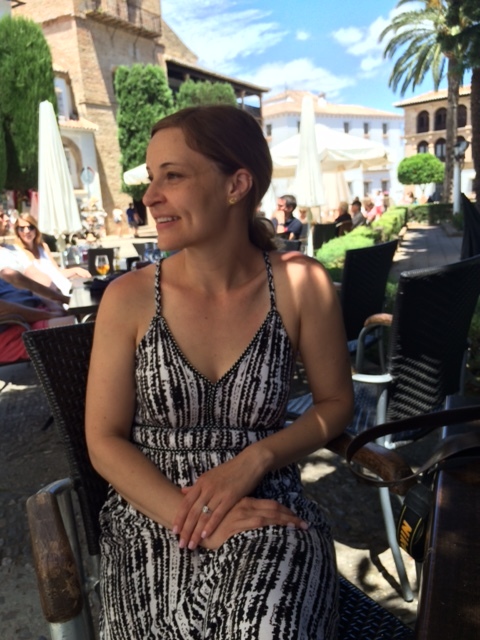I was at the Newseum in D. C. not long ago. It’s the museum dedicated to journalism and the history of the first amendment. Whether or not journalism always achieves it, its objective is to report the unbiased truth. The principle of Satya means truth, which is one of the core pathways to arriving at yoga’s goal of oneness with all things. I felt as if walking around the Newseum was in some ways an homage to Satya and a practice in truth.
The Newseum displays brave and honest journalism. I saw through a poignant gallery of Pulitzer Prize-winning photographs how telling the truth can be both beautiful and bellicose.
I was interested to see actual copies of Thomas Paine’s Common Sense and to learn about America’s early struggle for freedom of speech. But the special exhibit called Louder Than Words: Rock Power Politics, not surprisingly, the display with all the electric guitars, was the one that caught my ear.
Louder Than Words featured a few short documentaries including one about the nation’s political gasp after Jimi Hendrix, a symbol of hippie anti-establishmentism, spontaneously rocked out with The Star-Spangled Banner at Woodstock. Also celebrated in this exhibit was the hallowed and hand-written lyric sheet for Bob Dylan’s “The Times, They Are A Changin' ,” a commentary on the assassination of JFK. But my heart skipped a beat when I came around a corner and perched in front of me was a glass case holding the sacred relic of a beat-to-hell guitar belonging to none other than Joe Strummer from The Clash.
If you aren’t familiar with The Clash, then on behalf of all humans: Welcome to the planet Earth. We're happy you’ve come. The Clash was an important band from England in the late 70s. They were midwives for the birth of Punk, a “stick-it-to-the-man” movement born of the frustrations of a generation. Punk gave voice to a host of people who were angry at what they felt was a conservative, bleak, and expressionless era leading them hopelessly forward toward a vacuous future. Punk protested social norms, the economy, art and style, and of course, politics. They were not afraid to sing, and often scream, their truth.
By the way, I just discovered this cool site about learning to play Punk.
Check out these environmentally proleptic lyrics from “London Calling,” the title track of The Clash’s 1979 album:
"The ice age is coming, the sun is zooming in
Meltdown expected, the wheat is growin' thin
Engines stop running, but I have no fear
'Cause London is drowning, and I, I live by the river."
Yoga has broad definitions and “a yoga” can be defined as an action or response to pure observation. Therefore, Punk was “a yoga” of Satya in response to the politics of the day.
Yes, there must be a distinction drawn between spewing opinions into a microphone, and striving for an objective truth. But isn’t that the distilled practice of yoga, to ultimately discern between observation and assessment about any information, be that the tight hamstrings or a tight-ass politician?
The Clash are not the only ones to have spout off into a microphone. Today, there are many television and talk radio rockstars like Glenn Beck, Sean Hannity, Stephen Colbert, John Oliver, and others, who, just like The Clash, have their spotlight and their audience and wield their right to say whatever they want. While I may not agree with much of what some of these people say, because I believe Satya is a pathway to Oneness, a foundational pillar to yoga, I’ll defend their right to say it, even if they manage to offend the entire world in a mere 140 characters.
Wandering through the Newseum, I couldn’t help but become agitated as I thought about the emerging “war against the media,” waged by Trump, Poland, China, and others. It worries me because I believe such an attack on the media threatens the institution of journalism and so directly threatens what I feel is the sacred notion of freedom of speech. By controlling the media, ultimately Satya gets hijacked.
We stood in front of Joe Strummer’s guitar, me reading the plaque and two-year-old Elio shouting, “Guitar! Play it!” I leaned close to Elio and said, “Remember that guitar, Elio, it changed the world.”
Little did I know what an impression this display of “stick it to the man,” noise, and freedom of speech had made on little Elio. The next day at the hushed halls of the National Gallery of Art, Elio decided to practice some of his own freedom of speech.
While we were strolling this cavernous edifice of art, Elio became drunk with glee over the sound of his own tiny screams echoing off of the gallery’s walls. Each time I asked him to please use his “inside voice,” he happily screamed louder (at The Man, read: me, I had become The Man).
Once, as we were taking in the art, walking in a large crowd of tourists, we passed a next-to life size nude statue and Elio squealed with delight and screamed, “BUM BUM!” Feeling quite self-conscious about the raucous he was making, I told Elio gently but firmly that he needed to lower his voice or we were going to have to leave the museum, a textbook The Man mandate, or The Man-date. Elio responded to my reproach by hushing just long enough for me to begin pushing the stroller again. Then, with perfect timing, his piercing, tiny voice burst out even louder with, “Papa tooted!” This was followed by his menacing peal of laughter.
My face blushed more crimson than Childe Hassam’s poppies and in an attempt to recover some dignity, I retorted to Elio, but decidedly loud enough for others nearby to hear, “Ha ha. No I didn’t,” but my worlds fell flat upon the stony faces of both the tourists and statues alike. So childish, so Punk. I considered attempting to teach my two-year-old about the concept of libel but then thought better of it and simply pushed the stroller to another wing of the museum, Elio chuckling the entire way. This was Elio’s foray into the freedom of speech and stick it to the man and Punk in the face of “established culture.” And while I might appreciate it if he could say it more subtly, I must respect his right to say it.
So, whether it’s a little voice piped from a stroller or an ear-splitting voice screaming above an electric guitar, whether it’s cynical opinions about politics or capturing a split second through the lens of a camera, I believe in your right to speak your truth. I believe this moves us toward Satya and ultimately toward Oneness.
I invite us all to practice pure observation in the world and strive practicing the yoga of discerning the truth in what we see and hear. As you practice discerning truth, let’s cheer for the freedom of speech. And because of this freedom, choose whichever source you like for your information, but for me, I choose to listen to both a particular tiny voice and The Clash.
Come senators, congressmen
Please heed the call
Don't stand in the doorway
Don't block up the hall
For he that gets hurt
Will be he who has stalled
There's a battle outside
And it is ragin'.
It'll soon shake your windows
And rattle your walls
For the times they are a-changin'.
~ Bob Dylan
Also, if you love guitars, check out this post:
Unique Tunings for Guitars
Guitar Jimi Hendrix Played at Woodstock
Lyrics for The Times They Are A Changin'
Joe Strummer's Guitar
The Clash
Elio Sticks it To The Man














